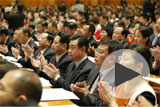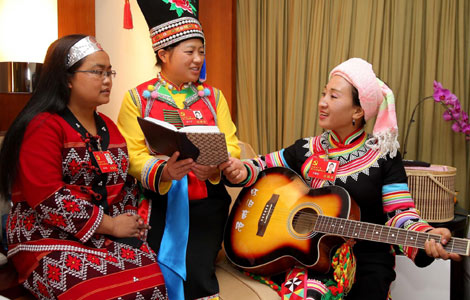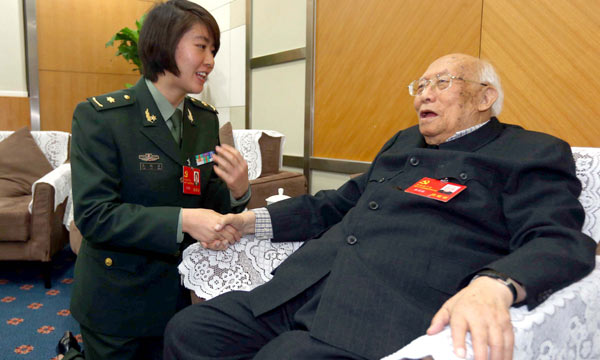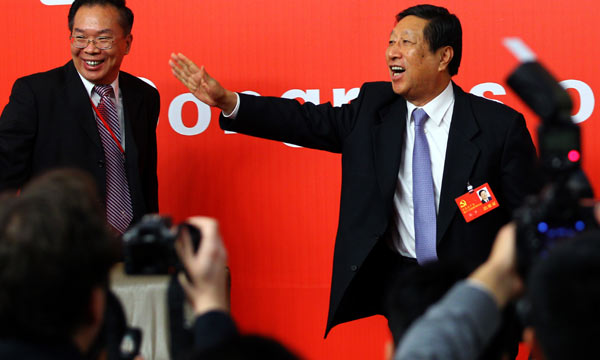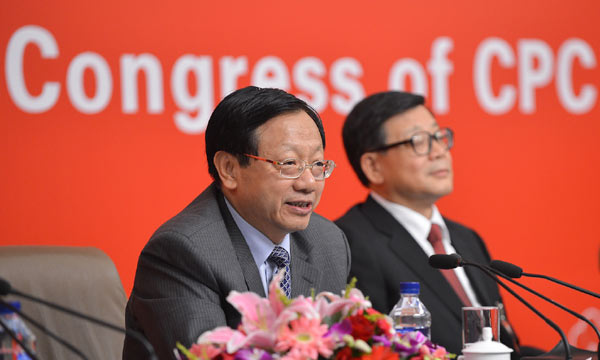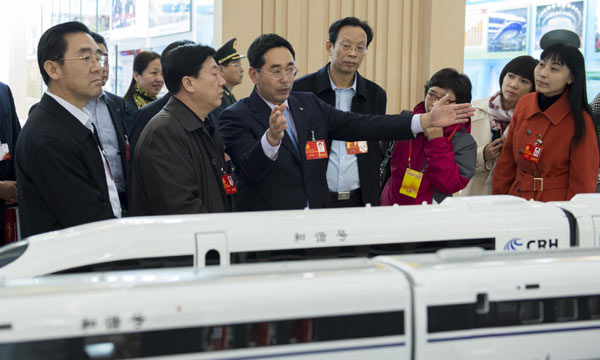Chinese 'wish list' before Party congress
(Xinhua)
Updated: 2012-11-06 21:14
BEIJING - Chen Zheren, a resident of the city of Qidong in East China's Jiangsu province, hopes that the upcoming 18th National Congress of the Communist Party of China (CPC) will result in significant progress in environmental protection.
Chen and thousands of others in Qidong were angered by a plan to build an industrial waste pipeline through the city. They assembled in large number to protest the move in July, which prompted the local government to halt the project.
The protest over environmental concerns in Qidong is not alone in China. In the latest case, thousands of residents in eastern city of Ningbo took to the street against the expansion of a petrochemical plant last month, also prompting the government to suspend the project.
"I hope the upcoming congress will address environmental issues and ensure that the 'scientific development' and 'sustainable development' policies are better implemented," said Chen.
More than 2,000 CPC delegates representing 82 million CPC members will gather on November 8 for the once-in-five-year congress. The CPC will also elect a new set of leaders, setting a new direction for the country's development in the near future.
The Chinese public has a multitude of expectations for the meeting to ignite greater reforms regarding economics, environmental protection, social well-being and many others areas.
Liu Bo, an entrepreneur from southwest China's city of Chengdu who runs his own medical company, is concerned about market access for private enterprises.
In recent years, the government has encouraged private companies to enter sectors that were once monopolized by state-owned giants. But Liu said the progress being made in the area needs to happen more quickly.
"In the medical industry, for example, private investment is in an inferior position in terms of both market access and equity," said Liu.
Liu said he hopes reforms will be implemented more quickly following the congress so as to ensure a fair and competitive market environment for private companies.
For Wang Ruihai, a resident of the city of Zhangjiakou in North China's Hebei province, his biggest concern is a perceived "moral decline" among the public which needs to be addressed.
He said he became particularly worried about the issue because of the tragedy happened to a toddler last year in south China.
Last October in Foshan city, Guangdong province, the unattended two-year-old girl was hit by two vehicles successively and was left bleeding without any help from 18 passersby. The girl was finally saved by a trash collector, but died later in hospital. The incident subsequently shocked the nation and triggered heated discussion on coldness and other social ills.
Wang, an employee of a non-governmental organization who used to work in a coal plant, also cited inequalities in income distribution as a problem the congress should tackle.
"The daily salary of a construction worker can hardly pay for a meal of a big company's manager," he said, adding that he hopes to see more policies that will narrow the wealth gap.
State-owned companies have monopolized industries such as oil, banking and telecommunications in China. Employees of those companies typically enjoy higher salaries and greater benefits than their privately-employed peers.
"I hope the government will do more to address income disparities and boost wages for low-income groups, " said 72-year-old Wang Wenyuan, a resident of the city of Xingtai in Hebei.
Wang Wenyuan said corruption has eroded the interests of the country and the people.
"Corruption not only concerns people the most, but also harms them the most," he said.
The corruption Wang Wenyuan referred to is perhaps best exemplified by the fall of Bo Xilai. The prominent government official from southwest China's Chongqing Municipality was sacked over disciplinary violations earlier this year.
"We have seen the central government's resolution to prevent corruption through some major cases," said Wang Wenyuan.
However, Zhang Baifeng, a farmer from the town of Douzhangzhuang in north China's Tianjin Municipality, said he believed that corruption cannot be eliminated in a single day.
"The work will be a long-term effort," he said.
Zhang, who was elected deputy head of the CPC committee of the village of Juanzi this year, said he hopes the country will become more developed in science and high technology used for national defense.
"It's just like farming. No matter how great a harvest you've got, it means nothing if others take your grain away," he said.
The farmer said he hoped the the top leadership of the country will be like a good driver, who must lead the country to move forward in the right direction.
"No matter who serves as the top leader, he should put himself in the people's position," Zhang said.
Related Stories
Past decade's achievements led by CPC 2012-11-06 17:20
CPC congress to impact on global economy 2012-11-06 14:37
Regards from the Pakistani ambassador to China 2012-11-02 14:00
CPC delegate helps local community grow 2012-10-30 14:04
Slide: Nation celebrates CPC congress 2012-11-06 17:29
Fudan students stand to create CPC emblem 2012-11-06 16:58
Previous CPC National Congress venues 2012-11-06 14:38
Video
